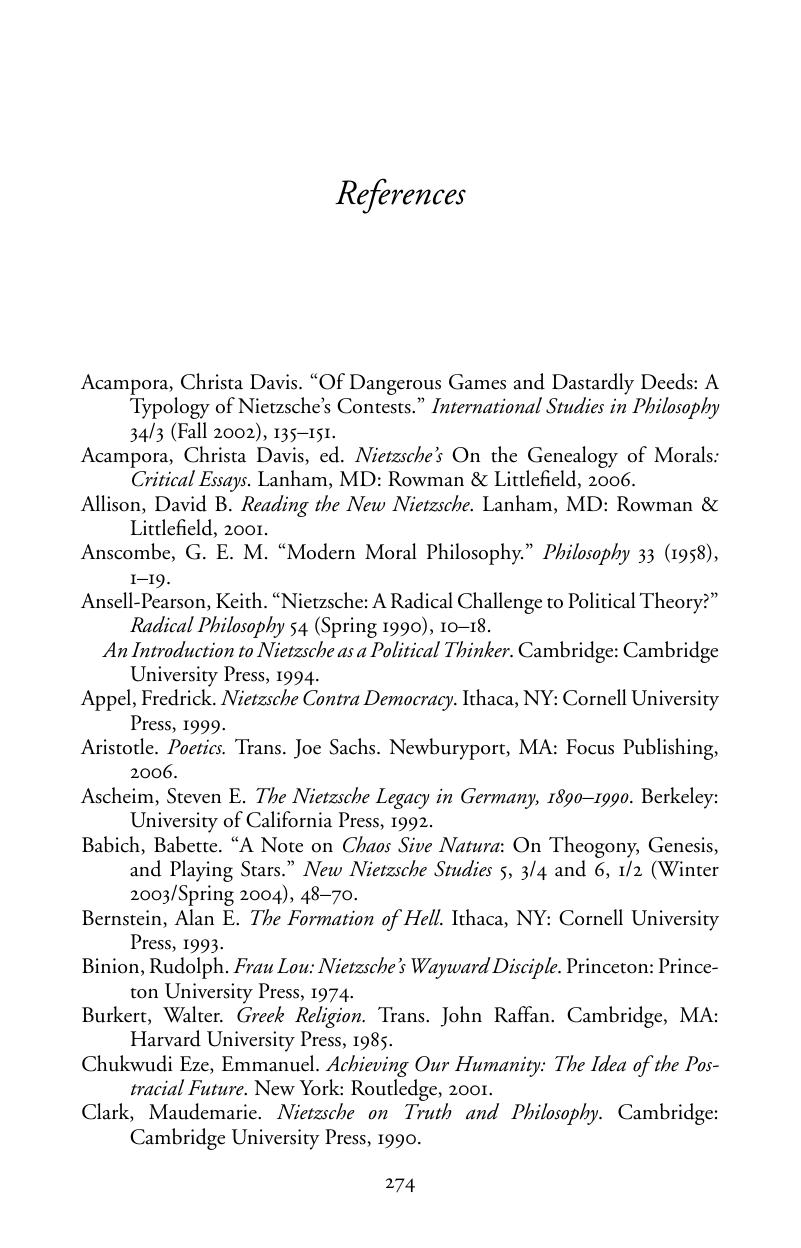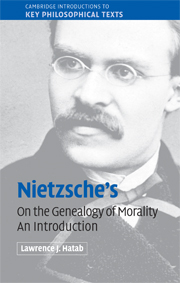Book contents
References
Published online by Cambridge University Press: 05 June 2012
Summary

- Type
- Chapter
- Information
- Nietzsche's 'On the Genealogy of Morality'An Introduction, pp. 274 - 278Publisher: Cambridge University PressPrint publication year: 2008



